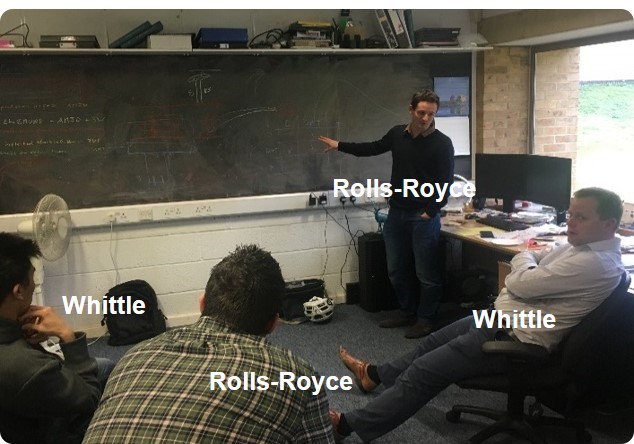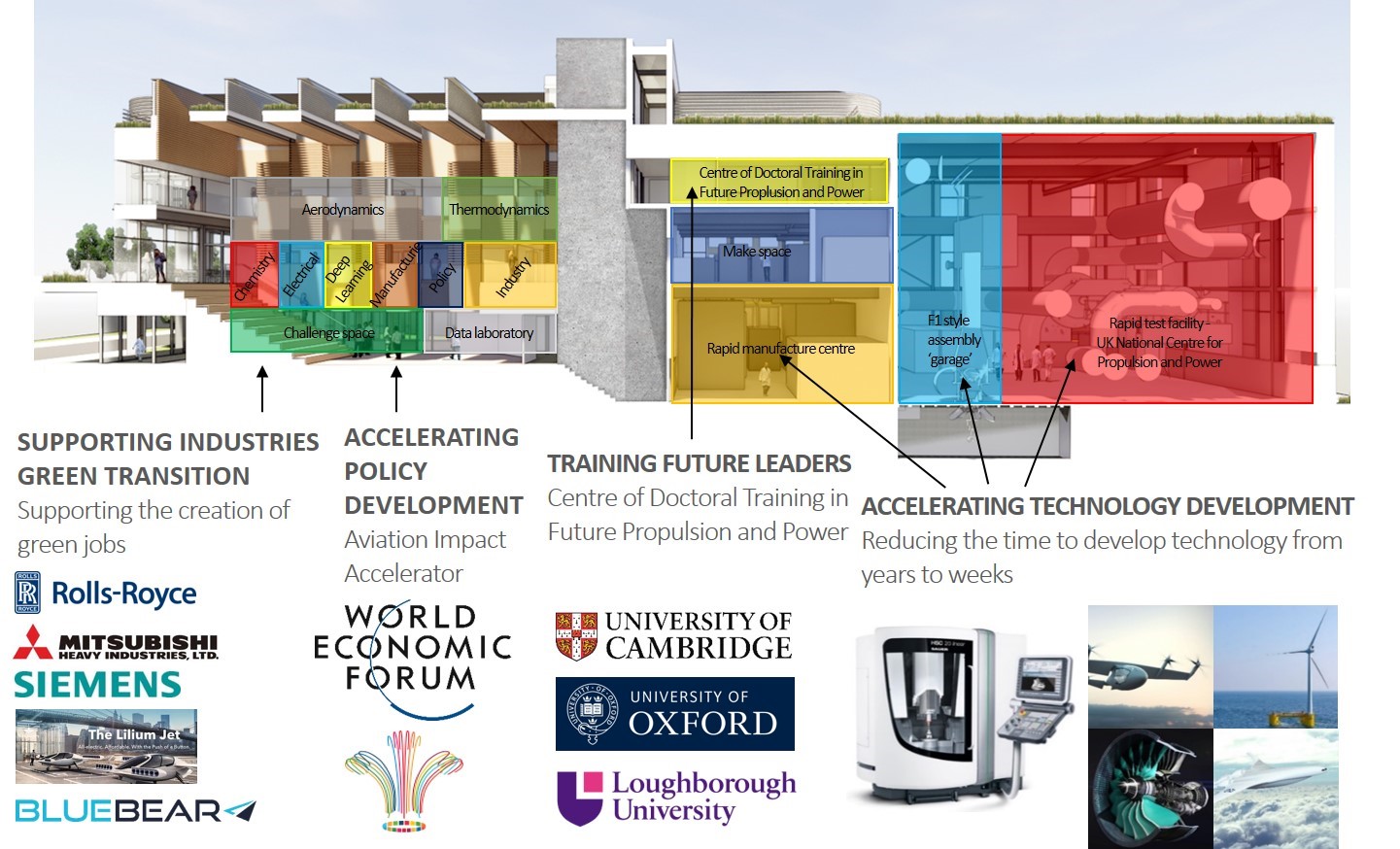testimonial /
"While many are calling for net zero flight by 2050, I would like to challenge you all to think about halving that time frame to 2035"
The New Whittle Laboratory will act as the UK’s Integrated Technology Accelerator
To accelerate the path to zero carbon flight there are two major challenges. First, the length of time required for aerospace technology development (currently around 6-8 years for a single technology). Second, the fact that the siloed nature of many research institutes is not well suited to the highly multidisciplinary approach required to overcome to the technical and social barriers involved.
The New Whittle Laboratory at Cambridge West Innovation District has been designed as an Integrated Technology Accelerator creating a facility without boundaries for a unique community of researchers, students, companies and entrepreneurs with unrivalled reputations for science, engineering and innovation.
Their shared vision is for a zero-carbon future for aviation. The radical approach that has been adopted can reduce technology development cycles from years to weeks, and by co-locating multiple disciplines around a single challenge it can address complex systems barriers and dramatically cut the delivery time. This offers the potential to halve the time to achieve zero carbon flight and the ability to take solutions to scale at speed.
Zero carbon flight is one of the greatest sustainability challenges. Success in this arena can be scaled to other industries and problems. The new Whittle will house the UK National Centre for Propulsion and Power, a unique rapid test facility will be accessible by wide range of industries. The impact of the Whittle and its partners will therefore ripple out far beyond the aviation sector.
The project is based on the Whittle Laboratory’s long pedigree. Sir Frank Whittle, after whom the Laboratory is named, started his company Power Jets, which developed the first jet engine, while studying at Cambridge. The Whittle Laboratory now has a global reach, partnering for over 50 years with companies such as Rolls-Royce, Mitsubishi, Siemens, and Dyson. The Laboratory has won over 100 international awards.
To deliver this ambitious project we need your support- to date Cambridge has raised £28.5 million for the project, but we need to secure another £25 million to make it a reality. Please contact Professor Robert Miller if you would like to get involved or to know more. In the words of His Royal Highness The Prince of Wales in his opening address to the American Society of Mechanical Engineers Turbo Expo conference, September 2020.
Our industry partners.
"While many are calling for net zero flight by 2050, I would like to challenge you all to think about halving that time frame to 2035"

Rapid Technology Development
The rapid technology development process, developed at the Whittle Laboratory, works by setting up small sharp focused DARPA style teams, which help to break down natural human communication barriers, allowing the teams to operate intuitively. Removal of top down management and bureaucracy encourages fast bold action and attracts the brightest minds. Energising the teams by competition and having clearly defined success metrics, allows the teams to easily judge success.
The teams are given access to tools which are designed to tighten the circle between idea, test and learning. This involves rapid design systems based on machine learning and augmented design systems, rapid manufacture capability, based on moving manufacturing in-house and coupling it directly to the design system, and rapid test capability, achieved by undertaking a value stream analysis on the experimental facilities and stripping out up to 95% of the operations. Together these tools allow the circle between idea, testing and learning to be reduced from months to days.

Open Ventilator System Initiative
During the Covid-19 pandemic, we switched the rapid-technology development teams from decarbonisation to tackling the pandemic – and the Open Ventilator System Initiative was born. Partnering with researchers from across the Cambridge cluster, doctors from Addenbrooke’s and South Africa, Prodrive in the UK, Beko in Turkey and Defy and Denel in South Africa, Rapid Technology teams were co-located in the Whittle Laboratory.
The result was the development of a flexible, intensive care-grade ventilator, the first to be manufactured in Africa and at about a tenth of the cost of other available ventilators. The project was awarded the Royal Academy of Engineering President’s Medal for Pandemic Service, recognising exceptional examples of engineering. Its impact will be felt long after the pandemic: it is estimated that around 162,000 children died of pneumonia in Nigeria in 2018. This demonstrates the power of rapid-technology development to work in other industries and sectors.
